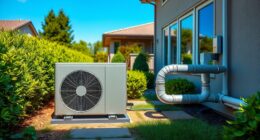Do you find yourself exhausted from feeling like you’re residing in an icebox during the winter and a steam room during the summer?
Well, grab a seat because we’ve got something that will revolutionize your home comfort. Introducing heat pump technology – the game changer you’ve been waiting for.
Imagine a system that heats your home in winter and cools it in summer, all while being energy efficient. Get ready to say goodbye to traditional HVAC systems and hello to a new era of comfort.
Key Takeaways
- Heat pumps provide both heating and cooling, making them a versatile solution for home comfort.
- Proper installation and regular maintenance are crucial for optimal performance and energy savings.
- Heat pumps are energy-efficient and eco-friendly, reducing both electricity consumption and greenhouse gas emissions.
- When choosing a heat pump, consider factors such as energy efficiency ratings, size and capacity, climate suitability, and following the manufacturer’s recommendations.
Understanding Heat Pump Technology
We’re going to delve into the ins and outs of heat pump technology. Heat pumps are innovative systems that can revolutionize your home comfort.
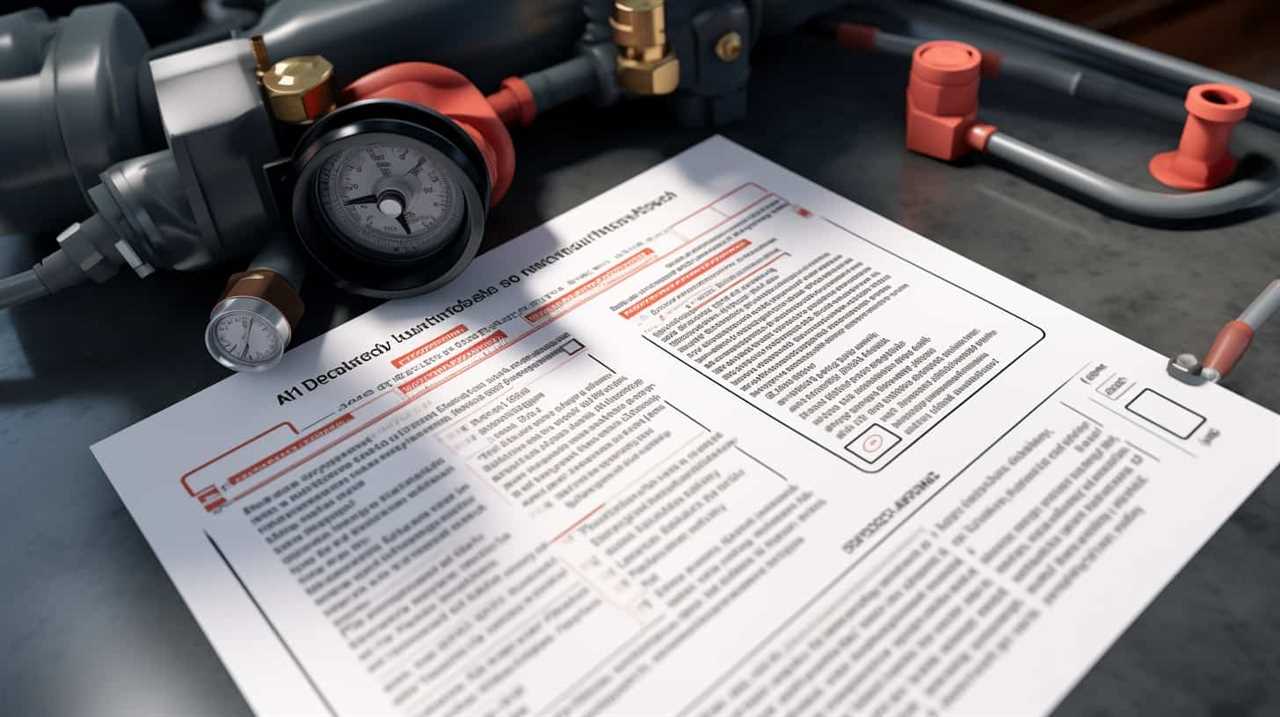
Let’s start with heat pump installation. When installing a heat pump, it’s crucial to consider factors such as the size and layout of your home, as well as the efficiency and capacity of the unit. Professional installation ensures optimal performance and energy savings.
Once installed, regular heat pump maintenance is essential. This includes cleaning or replacing filters, checking refrigerant levels, and inspecting electrical connections. Proper maintenance enhances the longevity and efficiency of your heat pump, ensuring it operates at peak performance.
How Heat Pumps Work
Let’s explore the mechanics of heat pumps and how they efficiently transfer heat from one area to another. Understanding heat transfer is essential to optimizing heat pump performance.
Here’s how heat pumps work:

Refrigerant: Heat pumps use a refrigerant, a substance that easily changes between gas and liquid states at low temperatures. This refrigerant plays a crucial role in transferring heat.
Evaporation: The heat pump’s evaporator coil absorbs heat from the surrounding air or ground. The refrigerant inside the coil evaporates, absorbing the heat energy.
Condensation: The refrigerant vapor is then compressed, increasing its temperature. As it moves through the condenser coil, it releases the absorbed heat to the indoor or outdoor space, depending on the season.
By efficiently transferring heat, heat pumps provide both heating and cooling for your home.
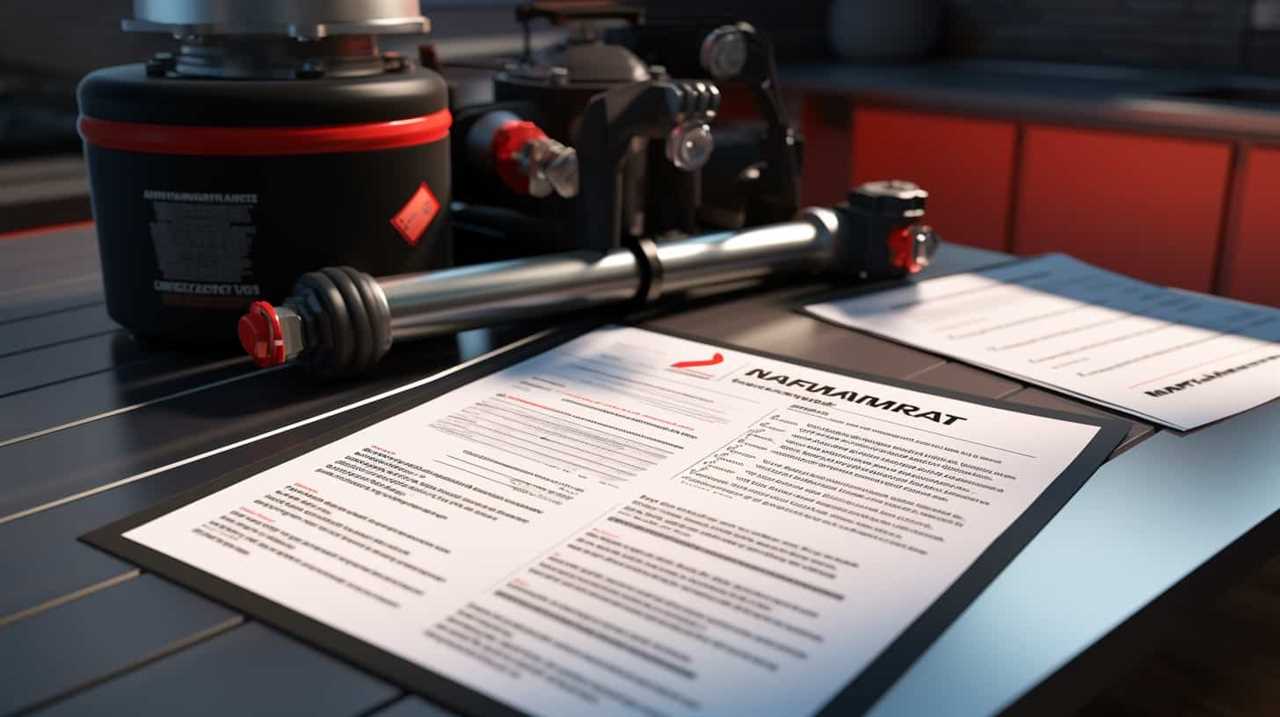
Now, let’s delve into the energy efficiency of heat pumps and how they can help reduce your carbon footprint.
The Energy Efficiency of Heat Pumps
Our energy-efficient heat pumps can significantly reduce your home’s carbon footprint while providing optimal comfort.
Heat pumps are known for their high energy efficiency, as they transfer heat from one location to another rather than generating heat directly. This means that for every unit of electricity consumed, a heat pump can produce several units of heat.
By utilizing renewable energy sources such as air, water, or the ground, heat pumps can further reduce their environmental impact.
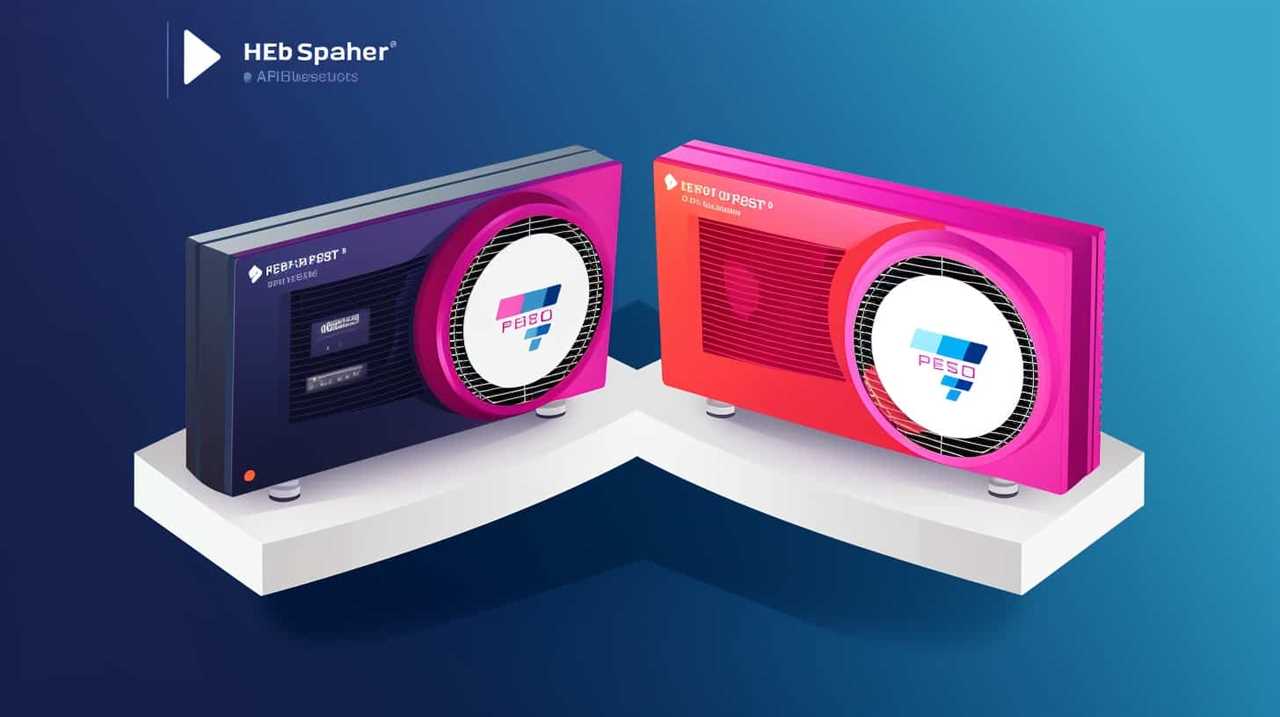
Additionally, advancements in heat pump technology have focused on improving performance and efficiency. This includes the use of variable-speed compressors and smart controls, which optimize the system’s operation based on the specific heating and cooling needs of a home.
These innovations not only enhance energy efficiency but also contribute to reducing the overall carbon footprint of your home.
Benefits of Installing a Heat Pump
When it comes to installing a heat pump in your home, there are several key benefits to consider.
Firstly, heat pumps offer cost-effective heating and cooling solutions, helping you save money on your energy bills in the long run.
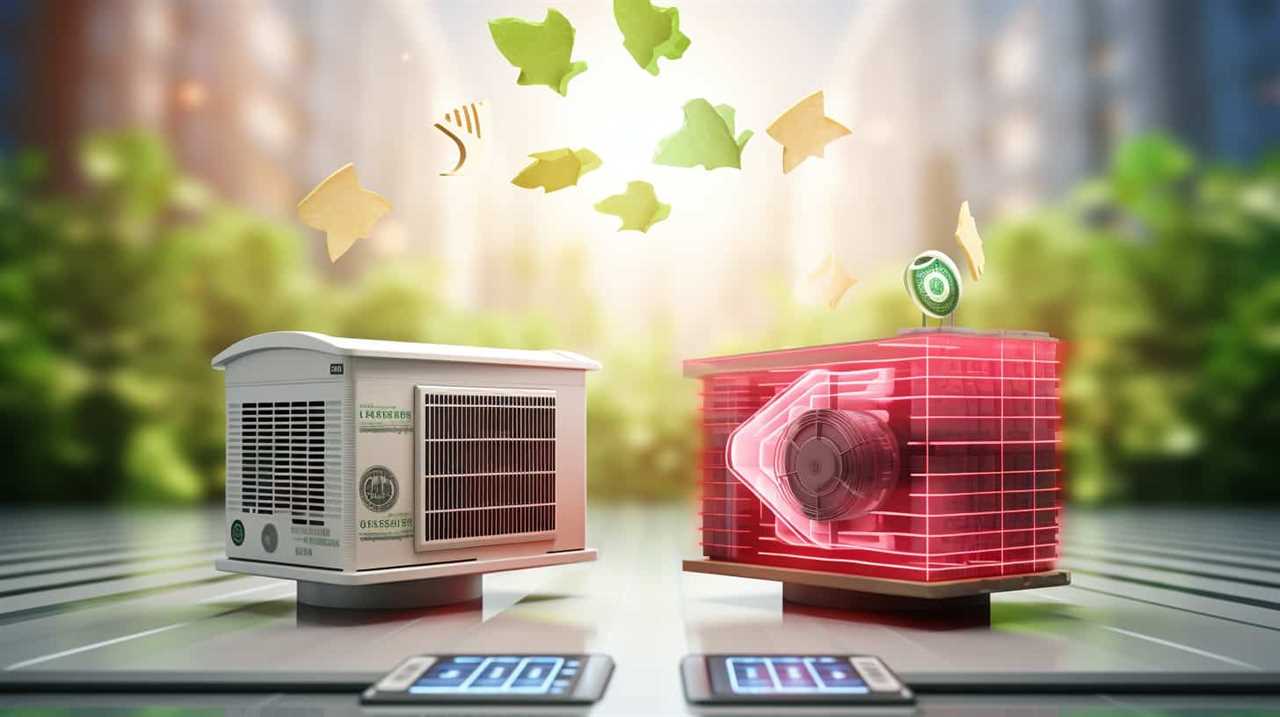
Additionally, heat pumps are highly energy-efficient, meaning they consume less energy while providing the same level of comfort as traditional HVAC systems.
Lastly, heat pumps are also eco-friendly, as they produce fewer greenhouse gas emissions compared to conventional heating and cooling methods.
Cost-Effective Heating and Cooling
Installing a heat pump can significantly cut down on our energy costs while providing efficient heating and cooling for our home. Here are three reasons why a heat pump is a cost-effective choice:
Energy Efficiency: Heat pumps are designed to transfer heat rather than generate it, making them highly efficient. They can extract heat from the air or ground, using minimal electricity in the process. This results in substantial cost savings on heating and cooling bills.

Reduced Environmental Impact: By utilizing renewable energy sources, such as the air or ground, heat pumps have a lower carbon footprint compared to traditional heating and cooling systems. They produce fewer greenhouse gas emissions, helping to mitigate climate change and protect the environment.
Long-Term Savings: Although the initial cost of installing a heat pump may be higher than other systems, the long-term savings outweigh the upfront investment. With lower energy consumption and reduced maintenance requirements, heat pumps offer significant cost savings over their lifespan.
Energy-Efficient and Eco-Friendly
We can enjoy the benefits of energy efficiency and eco-friendliness by choosing to install a heat pump in our home. Heat pumps are at the forefront of energy-saving technology, offering significant reductions in energy consumption compared to traditional HVAC systems.
By utilizing the ambient air or ground as a heat source, heat pumps can provide both heating and cooling functions efficiently. This not only saves money on utility bills but also reduces the environmental impact of our home comfort system. Heat pumps produce fewer greenhouse gas emissions and have a lower carbon footprint, making them an excellent choice for environmentally conscious individuals.
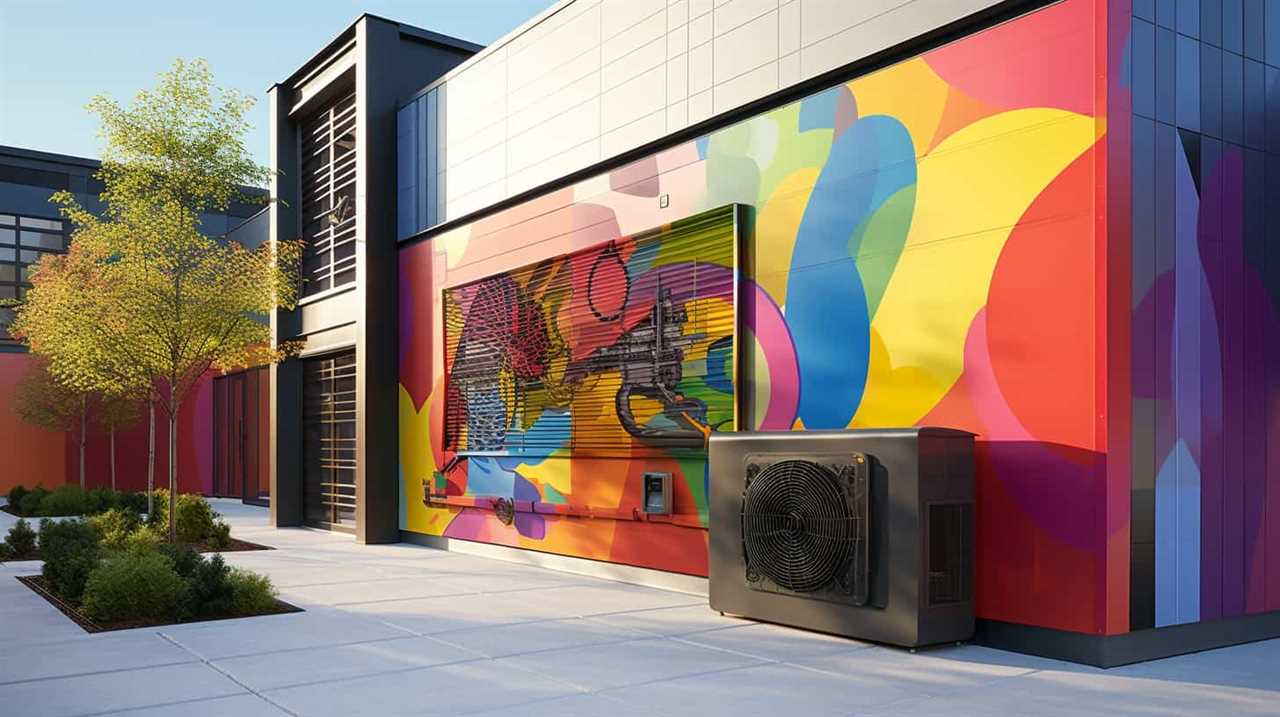
With their advanced technology and environmentally friendly operation, heat pumps offer an innovative solution for heating and cooling our homes.
Now, let’s compare heat pumps to traditional HVAC systems and explore their differences.
Heat Pumps Vs. Traditional HVAC Systems
The benefits of heat pumps compared to traditional HVAC systems are numerous and significant. Here are three reasons why heat pumps are the innovative choice for your home comfort:
Energy Efficiency: Heat pumps are highly efficient, using electricity to transfer heat rather than generating it. This means they consume less energy, resulting in lower utility bills and reduced carbon footprint.
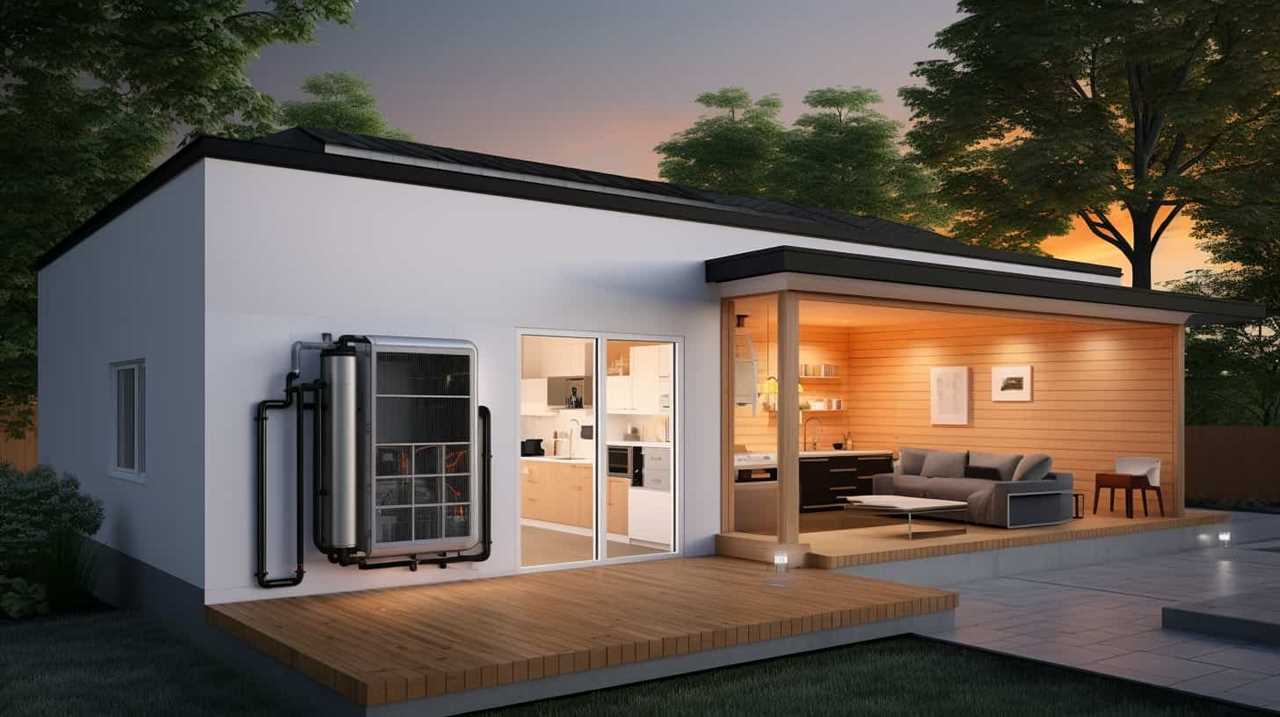
Versatility: Heat pumps can both heat and cool your home, eliminating the need for separate heating and cooling systems. They can extract heat from the outdoors to warm your home during winter and reverse the process to cool it during summer.
Low Maintenance: Heat pumps require minimal maintenance compared to traditional HVAC systems. Regular filter cleaning and occasional professional check-ups are usually all that’s needed to keep them running smoothly.
With their energy efficiency, versatility, and low maintenance requirements, heat pumps offer a revolutionary solution for home comfort.
Choosing the Right Heat Pump for Your Home
When it comes to choosing the right heat pump for your home, there are several important factors to consider.
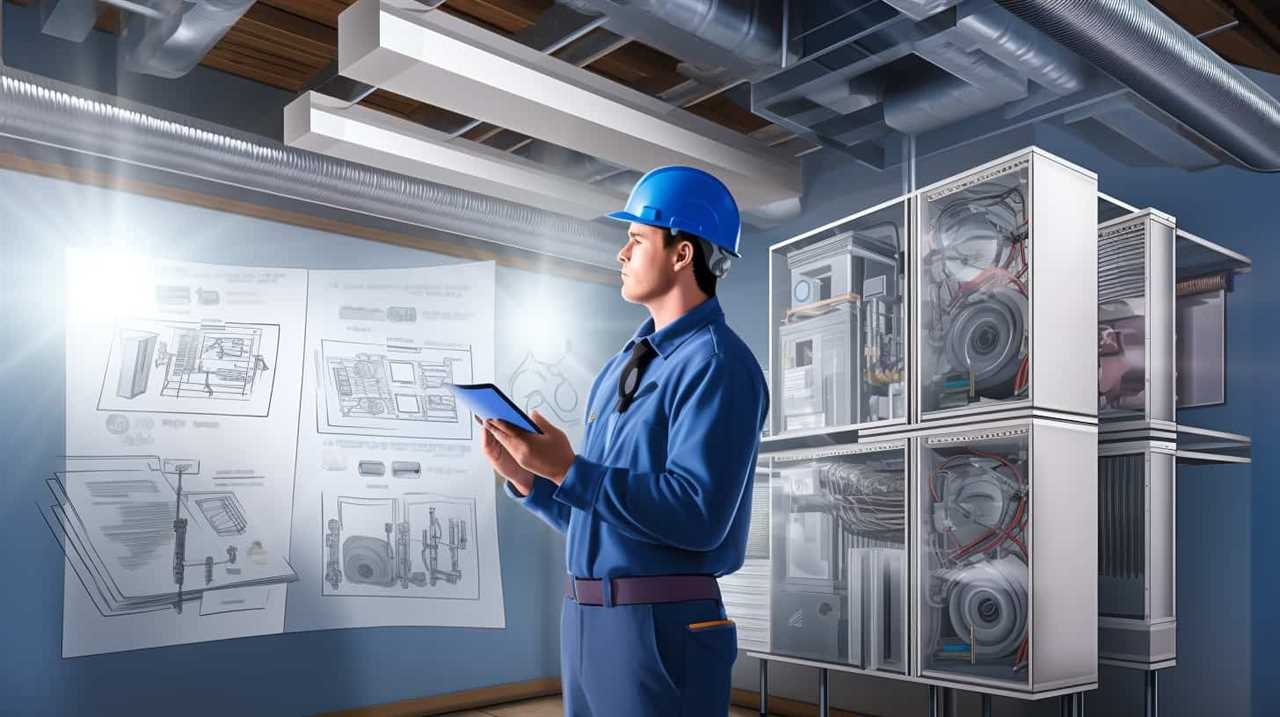
Firstly, energy efficiency ratings play a crucial role in determining the overall performance and cost-effectiveness of the heat pump.
Secondly, size and capacity must be carefully matched to the heating and cooling needs of your home.
Lastly, climate suitability is crucial to ensure that the heat pump can effectively operate in the specific climate conditions of your area.
Energy Efficiency Ratings
Choosing an energy efficient heat pump for our home is essential for maximizing comfort and reducing energy costs. When considering energy efficiency ratings, there are three key factors to keep in mind:
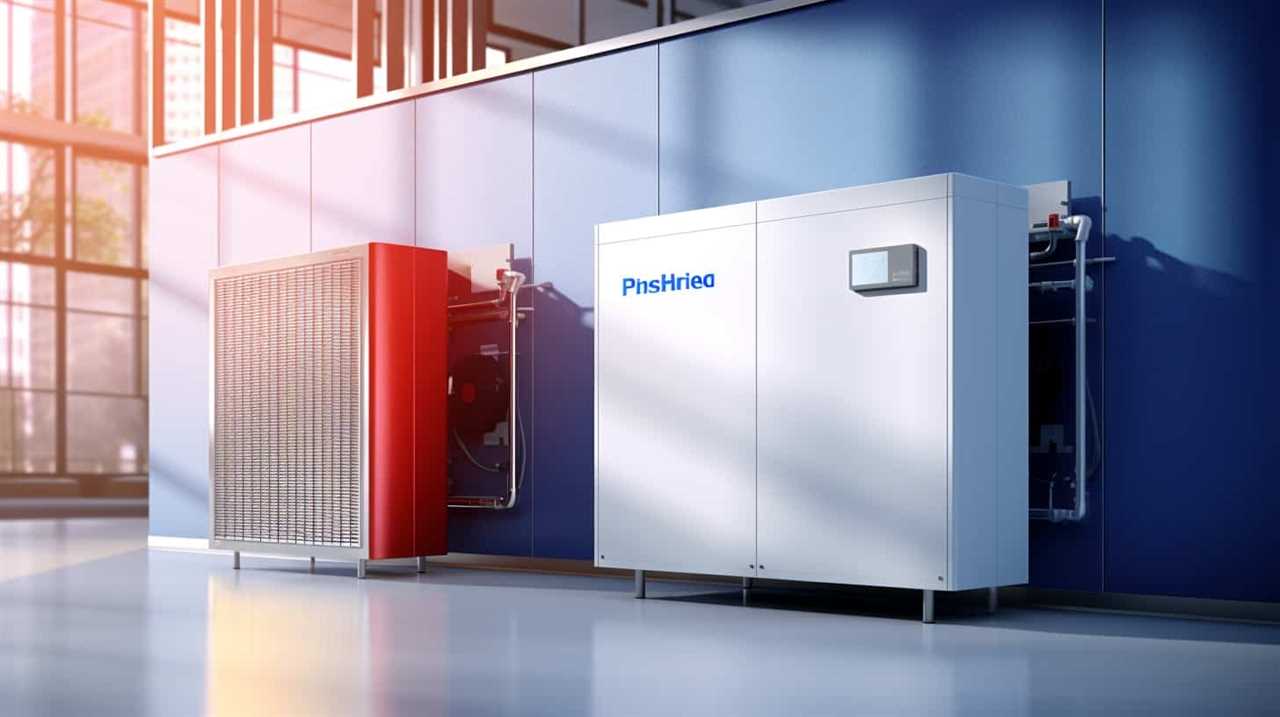
SEER (Seasonal Energy Efficiency Ratio): This rating measures the cooling efficiency of the heat pump. The higher the SEER rating, the more energy savings you can expect.
HSPF (Heating Seasonal Performance Factor): This rating measures the heating efficiency of the heat pump. Look for a higher HSPF rating to ensure optimal energy savings during the colder months.
EER (Energy Efficiency Ratio): This rating measures the overall energy efficiency of the heat pump. A higher EER rating indicates better energy savings and reduced environmental impact.
Size and Capacity
Our goal is to find the perfect size and capacity of heat pump for our home. When choosing a heat pump, there are several sizing considerations to take into account. First, we need to determine the heating and cooling requirements of our home. This can be done by considering factors such as the square footage, insulation levels, and number of windows in our home. Once we have determined the heating and cooling requirements, we can refer to a sizing chart provided by the manufacturer to find the appropriate heat pump size. It is important to note that an oversized or undersized heat pump can lead to inefficiencies and potential comfort issues.

To help visualize the sizing considerations, here is a table that outlines the recommended heat pump capacity based on square footage:
| Square Footage | Heat Pump Capacity (BTU) |
|---|---|
| Up to 1,000 | 12,000-18,000 |
| 1,000-1,500 | 18,000-24,000 |
| 1,500-2,000 | 24,000-30,000 |
| 2,000-2,500 | 30,000-36,000 |
| 2,500-3,000 | 36,000-42,000 |
Once we have determined the appropriate size, the next step is the installation process. This typically involves hiring a professional HVAC technician who will assess our home and ensure proper installation. They will consider factors such as the layout of our home, the location of the heat pump, and any necessary modifications to our existing HVAC system. By choosing the right size and capacity and following the proper installation process, we can ensure optimal comfort and efficiency in our home.
Climate Suitability
To ensure the right heat pump for our home, we must consider the climate suitability. Climate change impact and geographical considerations play a crucial role in selecting the most efficient and effective heat pump for our specific location.
Here are three key factors to keep in mind:

Temperature Range: Different heat pumps have varying optimal operating temperature ranges. It’s important to choose a heat pump that can handle the minimum and maximum temperatures experienced in our region.
Humidity Levels: Some heat pumps are better suited for humid climates, while others are designed for drier environments. Understanding the humidity levels in our area will help us choose a heat pump that can effectively manage moisture and provide optimal comfort.
Energy Efficiency: Climate suitability also affects the energy efficiency of heat pumps. By selecting a heat pump that’s designed to perform efficiently in our specific climate, we can maximize energy savings and reduce our carbon footprint.
Considering these climate factors will ensure that we choose a heat pump that’s perfectly suited to our home and climate conditions.
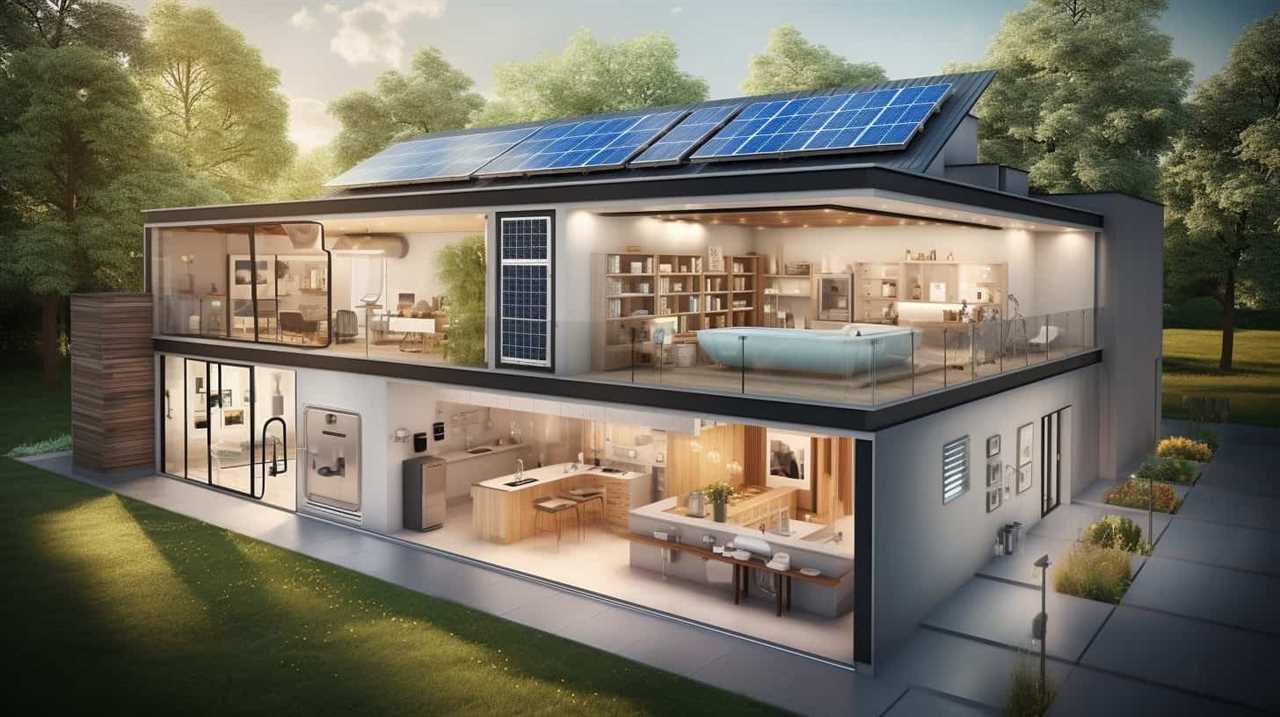
Maintaining and Troubleshooting Your Heat Pump
We can easily maintain and troubleshoot our heat pump by following these simple steps.
Regular heat pump maintenance is crucial to ensure optimal performance and energy efficiency. Start by cleaning or replacing the air filters every one to three months, as clogged filters can restrict airflow and reduce efficiency.
Inspect the outdoor unit for any debris or vegetation that may obstruct airflow and clear it away. Check the refrigerant levels and ensure they’re within the recommended range.
Lubricate the motor and fan bearings annually to prevent friction and extend their lifespan. Additionally, troubleshooting tips include checking the thermostat settings, ensuring the circuit breaker isn’t tripped, and inspecting the wiring for any loose connections.

Enhancing Home Comfort With Heat Pump Features
Maximizing home comfort is achieved by utilizing the various features offered by heat pump technology. Heat pumps not only provide efficient heating and cooling, but they also offer advanced functionalities that enhance comfort and convenience.
Here are three key features that revolutionize home comfort with heat pump technology:
Smart Home Integration: Heat pumps can be integrated into smart home systems, allowing you to control and monitor your heating and cooling settings from anywhere using your smartphone or voice commands. This seamless integration ensures that your home is always at the perfect temperature, tailored to your preferences.
Comfort Customization: Heat pumps offer a range of customizable settings, such as programmable temperature schedules and individual room zoning. This allows you to personalize the temperature in different areas of your home, ensuring optimal comfort for everyone.

Air Quality Enhancement: Some heat pumps also come with air purification features, removing allergens, pollutants, and odors from the air. This not only improves the comfort of your home but also promotes a healthier living environment.
Future Trends in Heat Pump Technology
As technology continues to advance, heat pump technology is evolving to meet the changing needs and demands of homeowners.
One of the future trends in heat pump technology is the integration of smart technology. Smart heat pumps utilize advanced sensors and algorithms to optimize energy consumption and provide personalized comfort settings. With the help of smart thermostats and mobile applications, homeowners can remotely control and monitor their heat pumps, making adjustments to temperature and scheduling based on their preferences and lifestyle.
Another future trend is the integration of renewable energy sources. Heat pumps can be designed to work in harmony with solar panels or wind turbines, allowing homeowners to harness clean and sustainable energy for their heating and cooling needs.
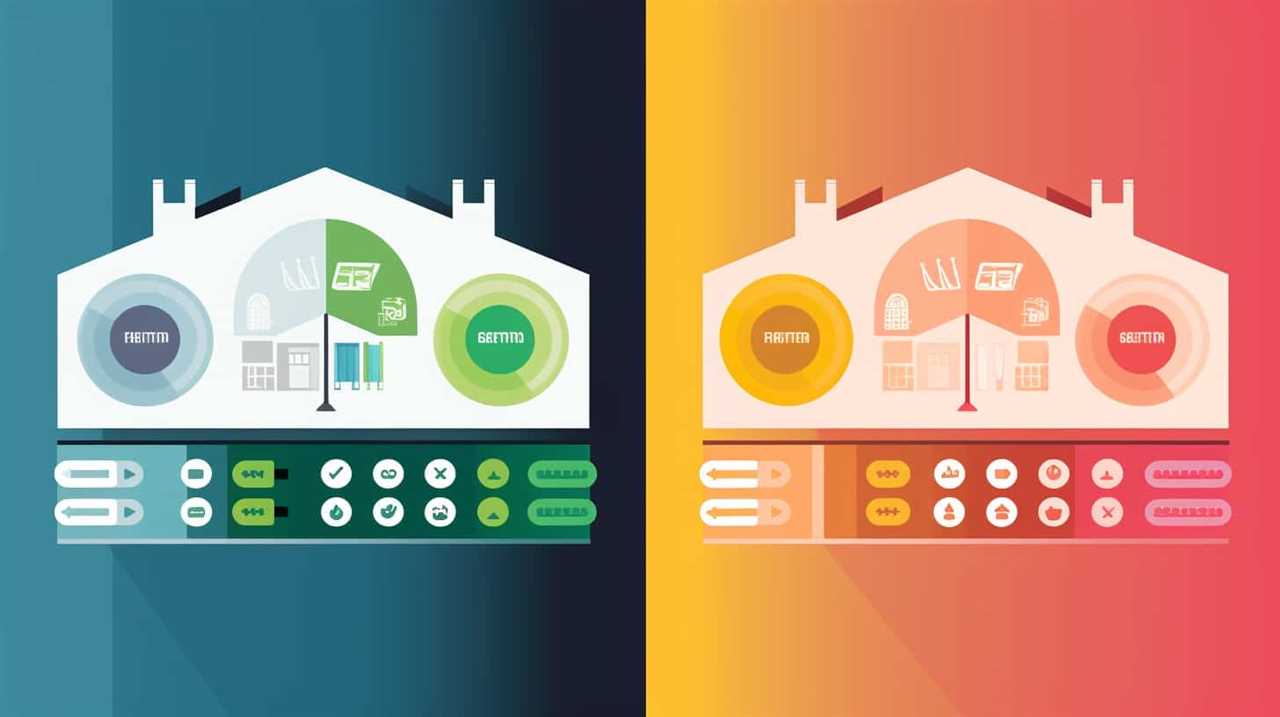
This combination of smart technology and renewable energy integration promises a more efficient, eco-friendly, and cost-effective solution for home comfort.
Frequently Asked Questions
Are Heat Pumps Suitable for All Types of Homes and Climates?
Heat pumps are suitable for all types of homes and climates. They are more efficient than traditional HVAC systems, providing both heating and cooling. However, their performance can vary in extreme climates.
How Much Does It Typically Cost to Install a Heat Pump in a Home?
Cost considerations and the installation process for heat pumps can vary depending on factors such as the size of the home and the type of heat pump. It’s important to consult with a professional to get an accurate estimate.
Can a Heat Pump Be Used as the Sole Heating and Cooling System in a Home?
Yes, a heat pump can be used as the sole heating and cooling system in a home. It offers high efficiency, reducing energy consumption and costs. However, drawbacks include reliance on electricity and limited effectiveness in extreme temperatures.
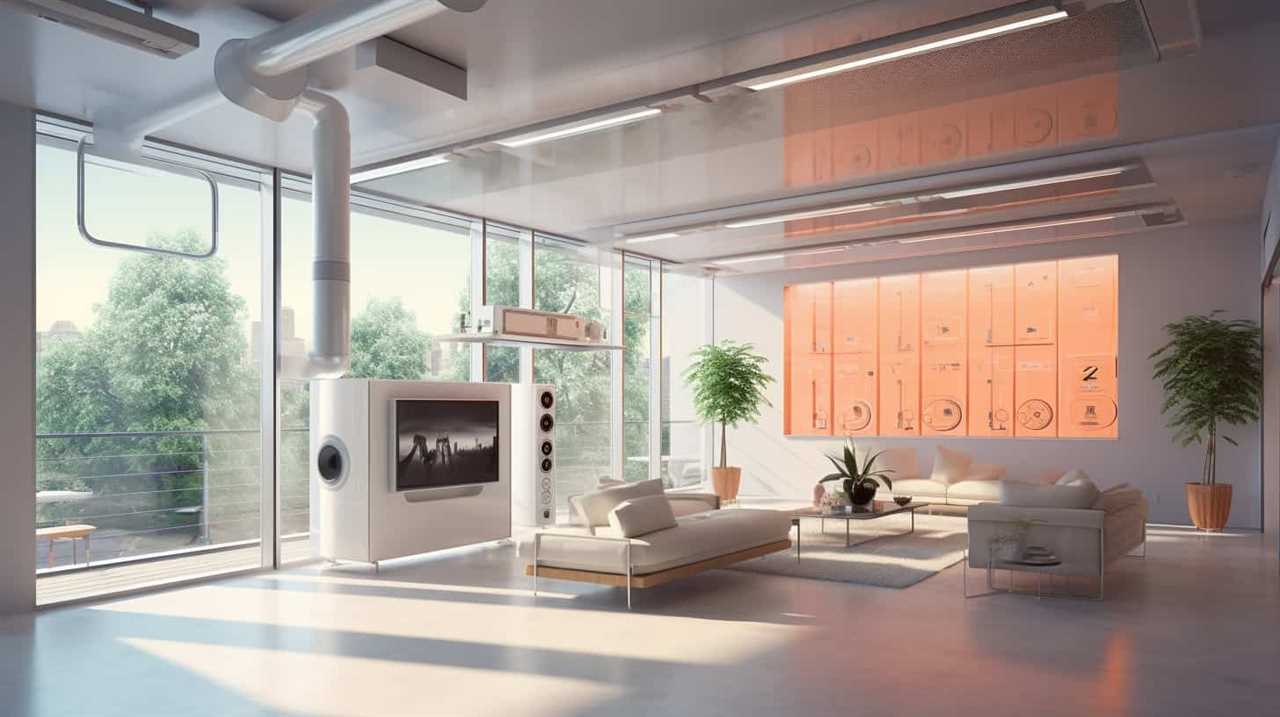
Are There Any Government Incentives or Rebates Available for Installing a Heat Pump?
Yes, there are government incentives and rebates available for installing a heat pump. These incentives aim to promote energy savings and encourage homeowners to adopt innovative technologies like heat pump technology.
Can a Heat Pump Also Provide Hot Water for the Household?
Yes, heat pumps can provide hot water for the household. Heat pump water heaters are known for their efficiency and have both pros and cons. They can revolutionize your home comfort by providing energy-efficient hot water.
Can Troubleshooting Heat Pumps Improve Home Comfort?
Heat pump troubleshooting techniques can play a crucial role in enhancing home comfort. By identifying and rectifying heat pump issues promptly, homeowners can ensure efficient heating and cooling, reducing energy consumption and maintaining optimum indoor temperature. Regular troubleshooting can also prevent costly repairs and extend the lifespan of the heat pump, improving overall comfort and saving money in the long run.
Conclusion
In conclusion, heat pump technology is a game-changer for home comfort. With their efficient operation and ability to both heat and cool, heat pumps offer numerous benefits over traditional HVAC systems.
By choosing the right heat pump for your home and properly maintaining it, you can enjoy enhanced comfort and energy savings.

As technology continues to advance, we can expect even more exciting developments in heat pump technology, further revolutionizing the way we experience comfort at home.






